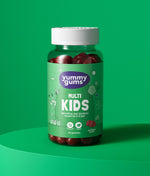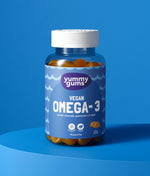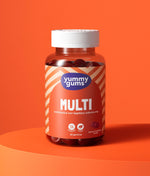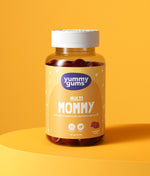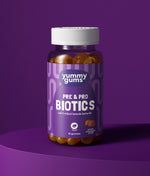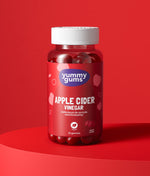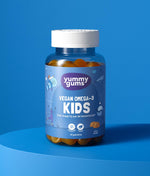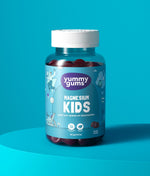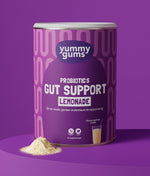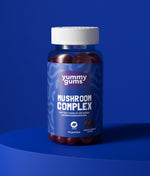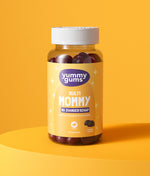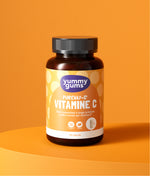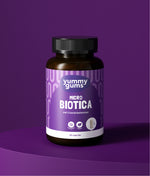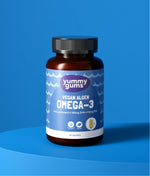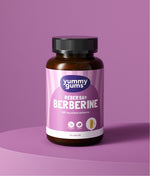All about multivitamins
Vitamines
Table of contents
What exactly are multivitamins?
What are the best vitamins and minerals in a multivitamin?
Which multivitamins are important for women?
What are the best multivitamins when pregnant?
Which multivitamins are good for men?
Which multivitamins are good for children?
How do you get enough vitamins and minerals?
What types of multivitamins are found in?
What is the difference between a regular and a vegan multivitamin?
Are there side effects of multivitamins?
What exactly are multivitamins?
A multivitamin is a supplement that contains all the vitamins and some minerals. The exact minerals and quantities vary by brand. Vitamins and minerals are micronutrients: nutrients that play a significant role in various processes in your body. For example, they ensure proper digestion and metabolism and help keep you healthy. They support some processes, but are essential for many others.
Your body can (partially) produce and store some vitamins itself. For example, vitamin K is produced in the intestines, and your skin produces vitamin D when it comes into contact with sunlight. If the amino acid tryptophan is present, your body can produce vitamin B3. Your body cannot (fully) produce water-soluble vitamins itself, and you simply pee out if you consume too much. Therefore, your body cannot store them, so it's important to get them every day. Vitamins B1, B2, B3, B5, B6, B7, B8, B11, B12, and C are water-soluble vitamins.
* Yummygums Multi+ is now available in our webshop!
What are the best vitamins and minerals in a multivitamin?
A multivitamin contains all thirteen vitamins: vitamin B1, B2, B3, B5, B6, B7, B8, B11, B12, C, D, E, and K, as well as several minerals. The minerals and their amounts vary by supplement. The minerals your body needs are calcium, magnesium, phosphorus, potassium, sodium, and chloride. Your body also needs the trace elements iron, iodine, copper, zinc, selenium, manganese, molybdenum, chromium, and fluoride, and they are therefore often found in multivitamins.
Which multivitamins are important for women?
Some vitamins and minerals are especially important for women. Iron, for example. The risk of developing an iron deficiency is higher if you're a woman because you lose blood during menstruation. Due to changes in hormone balance, bone density decreases after age 35, making your bones less strong. Therefore, it's recommended to take a vitamin D supplement from age 50. If you have dark skin and/or spend less than fifteen minutes a day outdoors with your head and hands uncovered, then supplemental vitamin D (10 mcg per day) is recommended.
Furthermore, for both women and men, eating responsibly every day is the foundation of a healthy lifestyle. Smokers need extra vitamin C. Do you exercise a lot, take medication, or eat (almost) no animal products? Then pay extra attention to your diet and consider taking a multivitamin to ensure you're getting enough.
If you're pregnant, breastfeeding, or have just given birth, your body needs more vitamins and minerals. Because these are relatively large amounts, women often take supplements to replenish their vitamin and mineral intake.
What are the best multivitamins when pregnant?
Before, during, and after pregnancy, your body needs higher doses of some vitamins and minerals. The most important vitamins and minerals are:
- Taking folic acid (vitamin B11) is beneficial for women trying to conceive. Folic acid contributes to the formation of the placenta and the baby's overall growth. It is recommended to start taking folic acid supplements at least one month before conception and continue until the tenth week of pregnancy.
- The Health Council recommends taking 10 micrograms of vitamin D daily when you're pregnant . Vitamin D helps with cell division and contributes to tissue development. Your body needs vitamin D to support your baby's bone development and to keep your own bones strong.
- Iodine is essential for children's growth. It plays a significant role in the functioning of the nervous system and contributes to metabolism.
- Vitamin A is good for your immune system and important for iron levels in the blood. Beta-carotene is converted into vitamin A in the body. Women are regularly warned about the risks of taking too high a dose of vitamin A during pregnancy. Therefore, many supplements contain only beta-carotene, so your body can produce the necessary amount of vitamin A itself.
- Choline contributes to the maintenance of the structure of cell membranes and contributes to normal lipid metabolism.
- Vitamins B2, B3, B5, B6, B12, and C help reduce fatigue. This can help you if you sleep poorly and feel tired during pregnancy.

Which multivitamins are good for men?
Men use more energy and therefore have different needs for some vitamins and minerals. For example, men need slightly more vitamins A, B2, B3, E, and K than women, and they need more magnesium, potassium, selenium, and chromium. If you have dark skin and/or spend less than fifteen minutes a day outdoors with your head and hands uncovered, supplemental vitamin D (10 mcg per day) is recommended.
Furthermore, for both women and men, eating responsibly every day is the foundation of a healthy lifestyle. Smokers need extra vitamin C. Do you exercise a lot, take medication, or eat (almost) no animal products? Then pay extra attention to your diet and consider taking a multivitamin to ensure you're getting enough.
Which multivitamins are good for children?
Some vitamins are especially important for children. Below, you can read which ones are important for each age group:
Baby (0 – 12 months)
- In the first few months, your baby will get enough from breast milk or formula. These contain almost all the nutrients your baby needs: you only need to supplement with vitamins D and K. Once your baby is a week old, you can give them an extra 10 micrograms of vitamin D daily. Continue this until your child is four years old , as they cannot yet get enough vitamin D from food or sunlight.
- Vitamin K is important for blood clotting and possibly also for bone formation. A vitamin K deficiency can cause bleeding. Babies are usually given vitamin K supplements immediately after birth because they may have developed a deficiency during pregnancy. This can happen if the vitamin K cannot reach the baby through the placenta. Furthermore, there are insufficient intestinal bacteria to produce vitamin K on their own. If your baby is breastfed or drinks less than 500 milliliters of formula per day, they will receive 150 micrograms of vitamin K daily from day one up to and including three months of age. The Netherlands Nutrition Centre recommends a vitamin K supplementation of 150 micrograms for babies aged 0 to 3 months.
Toddlers (1 – 3 years)
- Iron, vitamin D, and DHA are particularly important nutrients for toddlers. Children this age can be picky eaters and sometimes don't get enough vegetables, fruit, fish, or fat.
-
It is recommended that children up to the age of four be given 10 micrograms of vitamin D daily in addition to their diet, regardless of whether they eat enough vegetables.
Children (4 – 13 years)
There are no vitamins or minerals that are particularly important for primary school-aged children. Energy needs can vary in this age group, depending on how much your child exercises, for example.
How do you get enough vitamins and minerals?
If you eat completely according to the book, you'll generally get all the vitamins and minerals you need. But in practice, that's not always easy, especially if you're primarily focused on caring for your baby. The easiest and most effective way to ensure you're getting enough nutrients to support your recovery and reduce hair loss is to take a supplement. Yummygums Hair can help. Yummygums makes raspberry-flavored vegan gummies that are rich in selenium, zinc, and vitamin D.What types of multivitamins are found in?
But where do you find which vitamins in which foods? These products contain the following vitamins:
| Product | Vitamin |
| Bread, grain products & potatoes | Vitamin C and B11 (folic acid) |
| Meat (substitutes), fish, legumes, dairy & nuts | Vitamin A, D and B |
| Vegetables & fruits | Vitamin A and C |
| Spreads & cooking fats: | vitamins A, B11, D and E |
All of the above foods contain vitamin K.
What is the difference between a regular and a vegan multivitamin?
Supplements come in all sorts of forms: tablets, drops, and gummies. Gummies are a type of candy with a soft texture. These are based on gelatin, pectin, or starch. Gelatin is the term for proteins derived from the bones and cartilage of mammals. Pectin is found in apples and pears, and starch is a carbohydrate found in potatoes and grain products, among other things. The last two ingredients are entirely plant-based. The difference between a vegan and a non-vegan multivitamin is therefore the (base) ingredient.
Are there side effects of multivitamins?
According to the Netherlands Nutrition Centre , there are indications that certain amounts of vitamin C, beta-carotene, iron, phosphorus, potassium, and manganese can cause adverse effects, such as intestinal discomfort with more than 2 grams of vitamin C. No tolerable upper intake levels (a maximum amount without causing symptoms) have yet been established for these vitamins and minerals. However, there are limits for folic acid: more than 200 micrograms (for children aged three) or 350 micrograms (for children aged four to eight) of synthetic folic acid can lead to health problems. Therefore, check the label before purchasing a supplement, and pay particular attention to the amount of vitamin A and folic acid.

